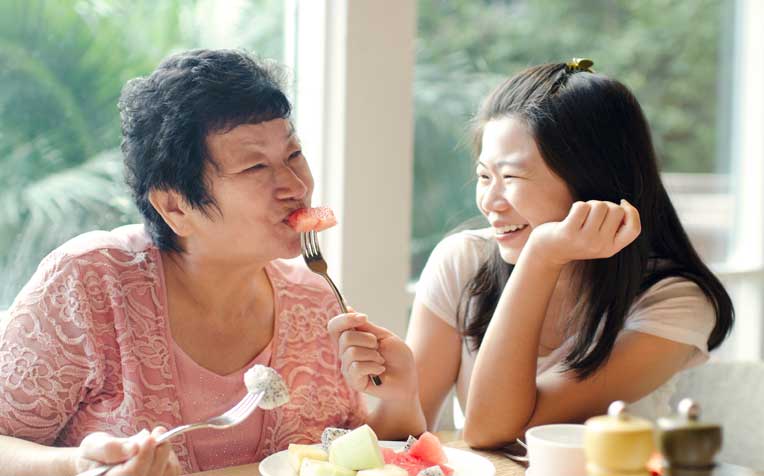HealthXchange will NEVER ask you to transfer money over a call. If in doubt, call the 24/7 ScamShield helpline at 1799, or visit the ScamShield website at www.scamshield.gov.sg.
Cancer in the Elderly: Improve Survival Rates
1. Childhood obesity rates rising globally; 70% of overweight seven-year-olds remain overweight as adults in Singapore.
2. Parents should model healthy eating habits, encourage family meals, and limit sugary drinks and snacking.
3. Children need 60 minutes daily physical activity, less screen time, 8-11 hours sleep for healthy development.

Proper nutrition helps improve cancer survival rates in the elderly.
Tips on improving cancer survival rates
Provide a supportive home environment
Create a loving and supportive home environment for elderly cancer patients suffering from depression. Ensure they take the prescribed depression medications and do not live in social isolation. Caregivers should take time to listen to and talk with the elderly patient.Ensure proper nutrition
The loss of teeth coupled with difficulties in chewing and swallowing, as well as a loss of appetite, taste and smell caused by cancer treatments, will affect the ability of elderly cancer patients to maintain good nutritional health.Prepare frequent, but small and well-balanced meals, to make eating more manageable. Include soft foods and healthy smoothies made of yogurt, fruits or vegetables to make swallowing easier for elderly cancer patients.
Take an active role in the treatment process
Elderly cancer patients with severe cognitive impairment, such as dementia, are totally dependent on their caregivers to make the “right” treatment decisions. They are less able to articulate the symptoms of the disease or treatment side effects, and need help to follow through with the treatment schedule. Caregivers should learn about possible treatment toxicities and provide elderly cancer patients with emotional and physical support throughout the treatment period.Ensure elderly cancer patients get regular exercise Encourage elderly cancer patients with difficulties in performing normal daily activities to exercise regularly or seek physical rehabilitation to improve their strength and mobility. Cancer patients who exercise have better survival rates.
“Caring for elderly cancer patients can be very challenging. While it is important for caregivers to have patience, compassion and understanding, it is equally important to avoid caregiver burnout. Caregivers should give themselves respite from constant care-giving,” Dr Ravindran Kanesvaran, from the Department of Medical Oncology at National Cancer Centre Singapore (NCCS), a member of the SingHealth group, advises.
Ref: P16
Contributed by
Related Articles
Conditions & Treatments
Public Events
Get the Health Buddy App
© 2025 SingHealth Group. All Rights Reserved.
















 Get it on Google Play
Get it on Google Play